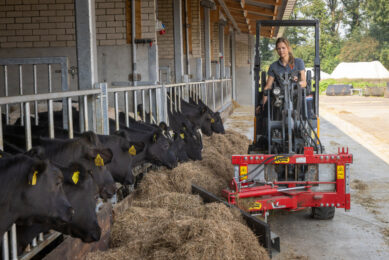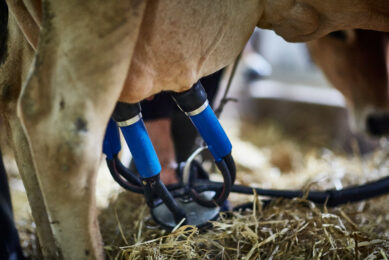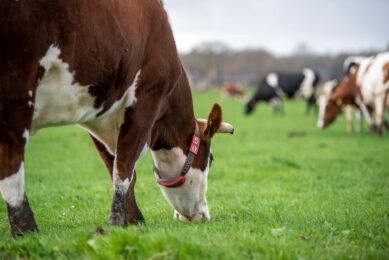How a Northern Ireland dairy farm became more sustainable
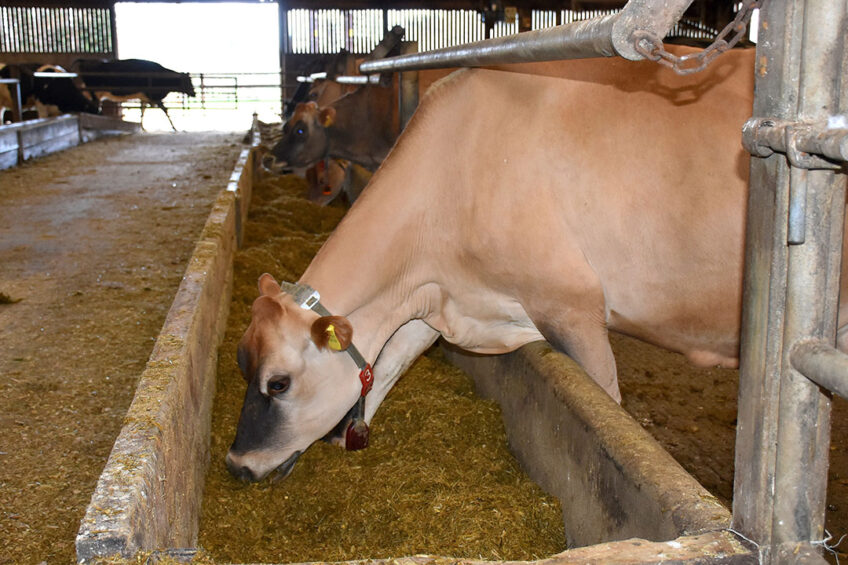
Making a number of investments to add value to its milk and cut down on energy costs has helped a Northern Irish farm estate become more sustainable.
The farm estate is located near Bangor in County Down. Now held in a Trust, the estate had previously been run by Lady Dufferin, the late Marchioness of Dufferin and Ava, who passed away in 2020.
The estate has invested £3.5 million within the last 10 years constructing an anaerobic digester plant and, more recently, a yoghurt production facility.
The farm itself extends to 670 acres: 465 acres for grass, 120 acres for forage crops, 70 acres of maize harvest and 15 acres of wild flower meadows.
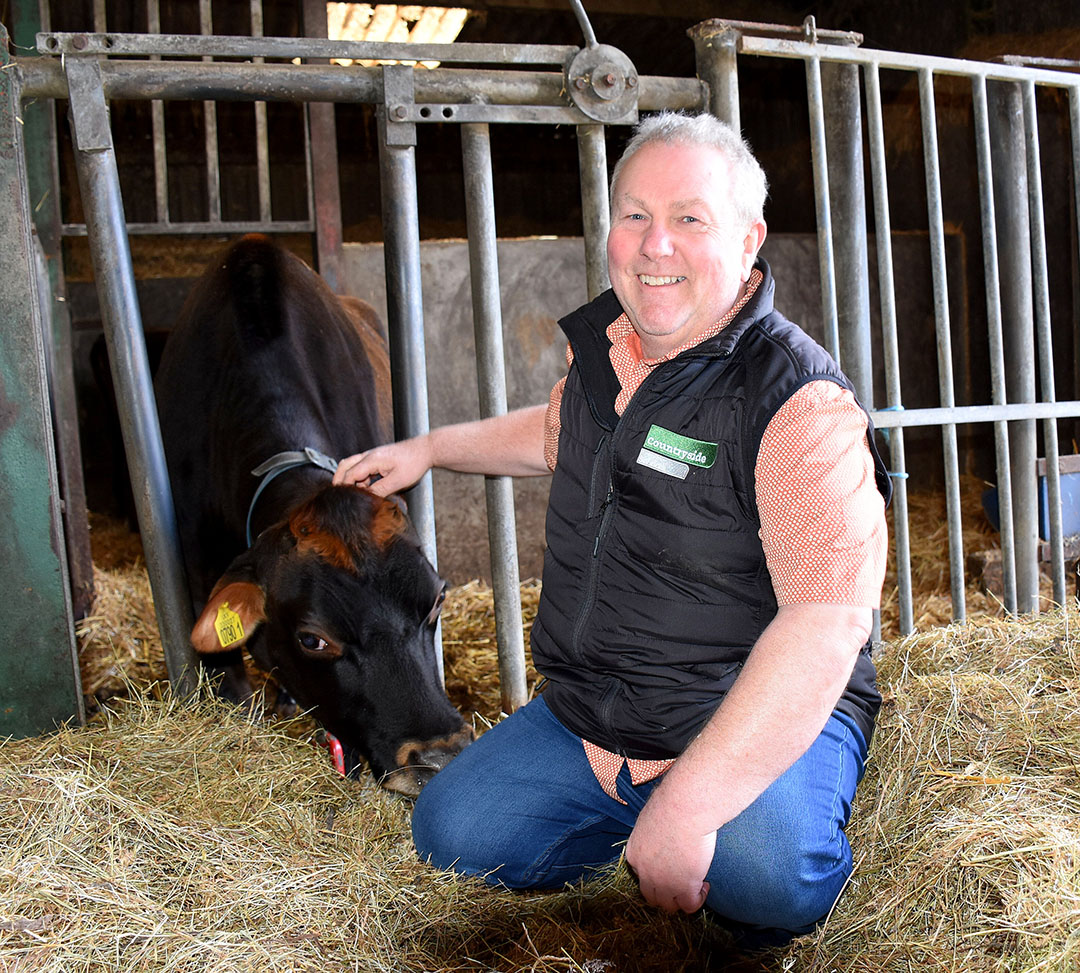
The herd and milking
Under the expertise of estate manager Mark Logan, the dairy farm runs a pedigree herd of 70 Holstein cows and 30 Jersey cows, both under the Clandeboye prefix. Logan, who has worked on the estate for the past 32 years, runs a team of 3 other farm staff. He is an expert breeder and uses sexed semen on all the cows.
The herd is milked twice a day in a Boumatic 8-aside parlour that was installed in 2002. “Our Holsteins are averaging 10,005 litres per cow per year at 4.28% butterfat and 3.35% protein and the Jerseys, just over 7,236 litres at 5.39% butterfat and 3.95% protein,” says Logan.
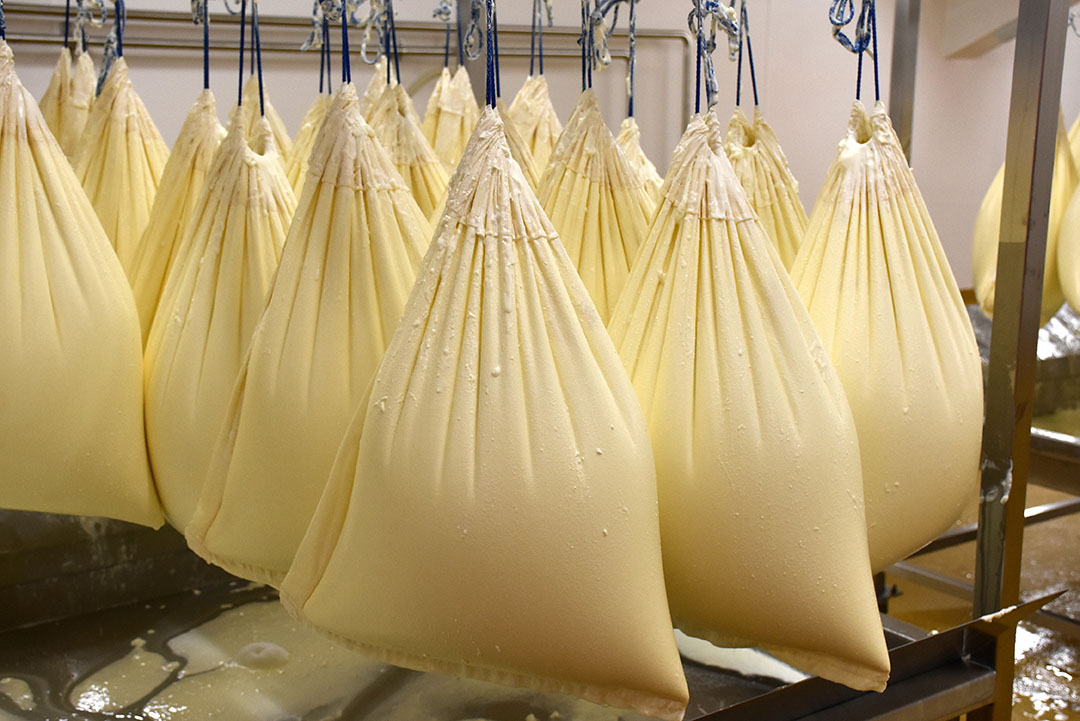
Anaerobic digester investment
The estate built its own 250kW anaerobic digester (AD) 7 years ago with an investment of £1.5 million and a payback of 6 years. “The AD plant and the cows utilise all our acreage on the farm. Actually, the AD plant is hungrier than the cows as we feed it around 15 tonnes of grass silage, forage rye and forage maize per day. The cows receive the same forages but the grass for the AD plant must be chopped finer,” said Logan, adding that all the farmyard manure and slurry from the cattle, plus the whey and the first washings from the yoghurt factory, are fed to the AD plant.
The gas produced from the plant powers the gas turbine, which generates electricity. This power and heat is used on the farm, estate buildings, and provides hot water for the yoghurt factory.
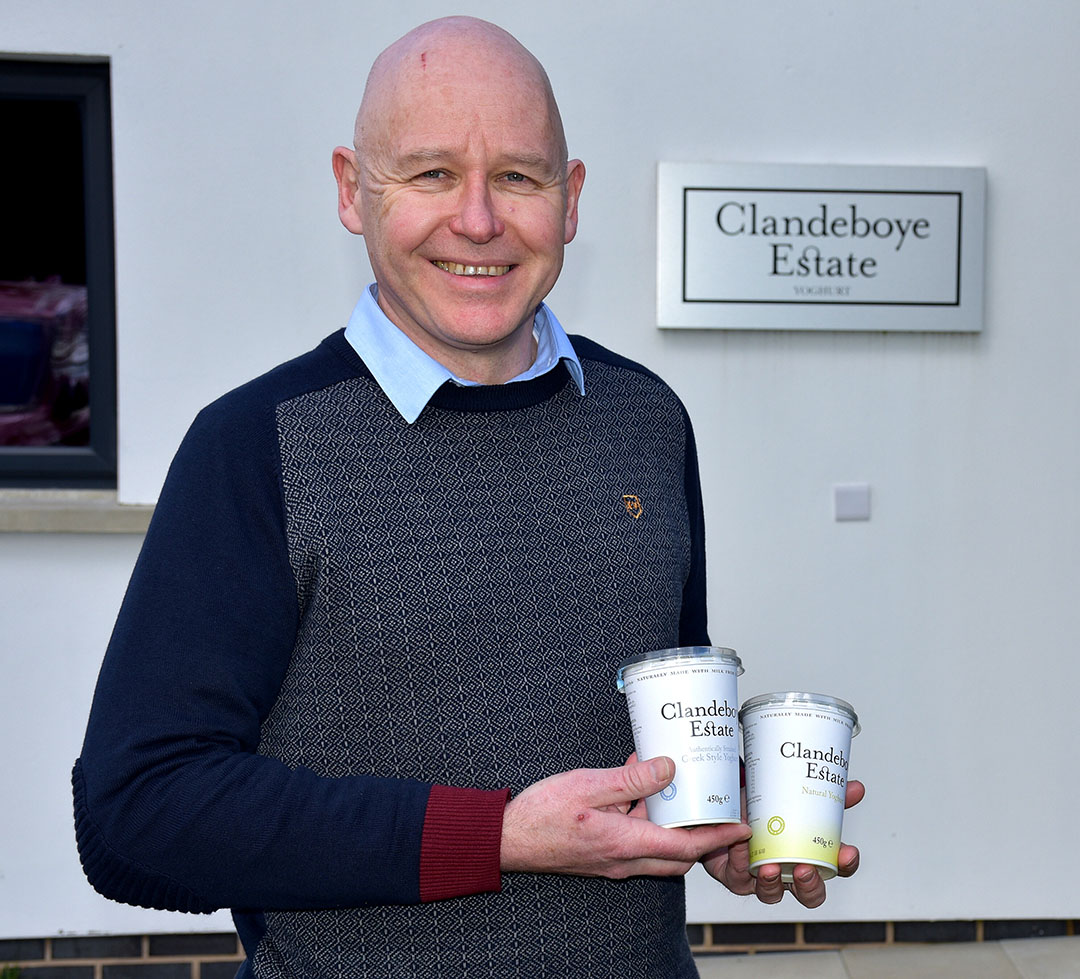
“The estate is using around 40% of the electricity we produce and the rest is sold to the national grid. In terms of heat, we pump it from the plant to the mansion house 1km away, and to the yoghurt factory,” he said.
Farm succession is a bit of a taboo subject to discuss on any farm, but Logan, who is 64, says the issue is being addressed: “We need to seriously look at this over the next 2 years. I will retire soon and we need to find new staff to carry on the work here. We have already employed a new person to help look after the cows, but more new staff will be required.”
Adding value from yoghurt
Back in 2007, Clandeboye Estate launched its own range of yoghurts under the guidance of estate owner, the late Lady Dufferin. Since then, the yoghurt had been made in rented factory premises in the nearby town of Newtownards, but in 2022 the estate invested £2 million developing its own production facility right beside the farm.
The yoghurt factory produces around 8 tonnes of yoghurt from around 8,000 litres of milk per day, 5 days per week, from the dairy herd, including some from a neighbouring farm. Production at the factory is growing at around 30% per year.
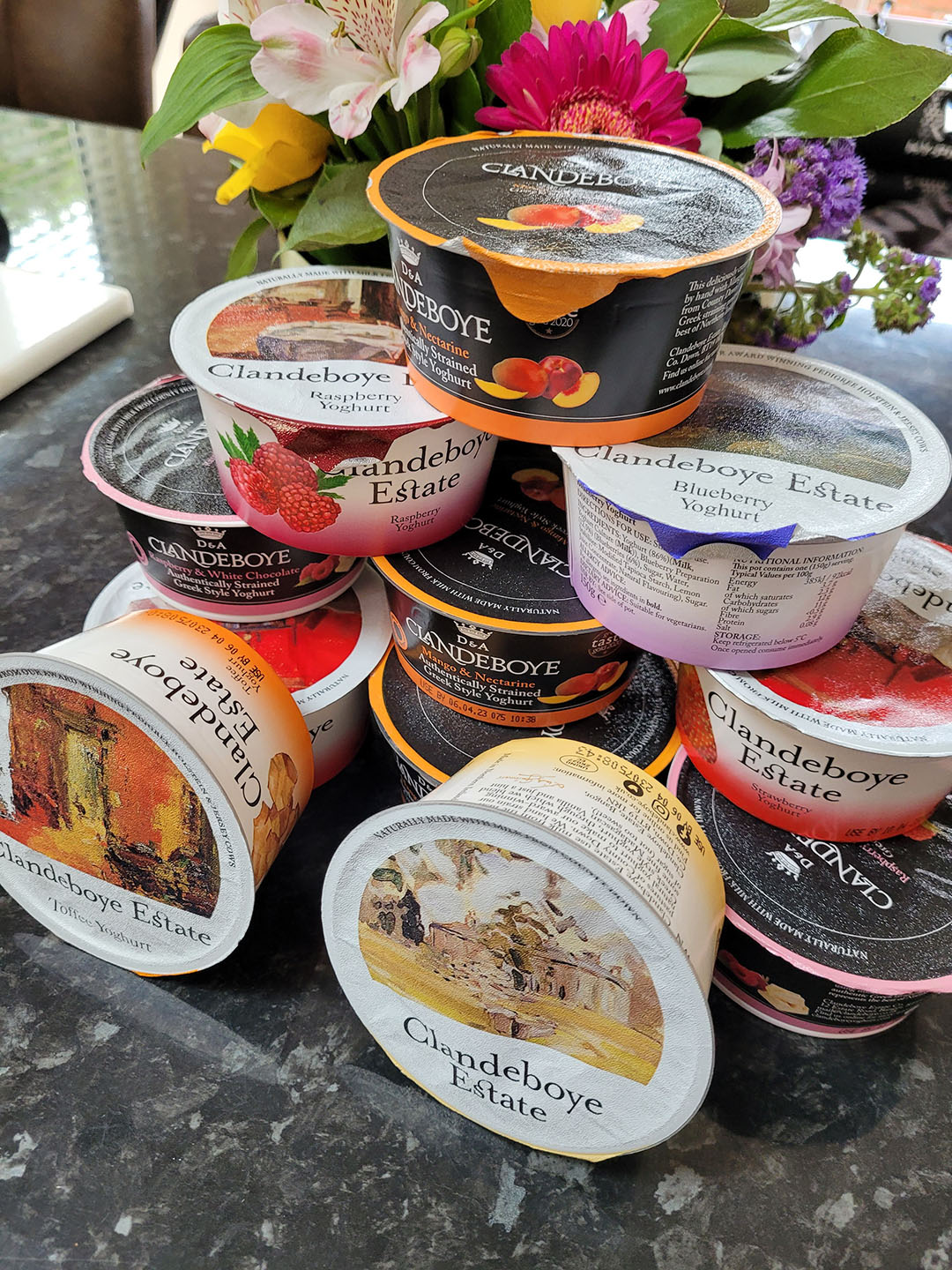
It pays the farm the current going milk price plus an extra 2 pence per litre. Around 20 staff work at the factory which produces a full range of natural, Greek style, flavoured and layered whole milk yoghurts for both the retail and food service markets.
“The milk is taken fresh from the farm each morning and is processed and incubated slowly overnight to produce a rich and creamy natural yoghurt,” said Bryan Boggs, general manager of Clandeboye Estate yoghurt. “Some of this natural yoghurt is then strained through cheesecloth in the traditional way to produce our authentic award-winning Greek Style yoghurt. We are quite unique in carrying out this process. We only do whole milk yoghurt and don’t skim the milk, or use milk powders. Nothing is taken away or added, except flavouring for some of the product range,” he stated.
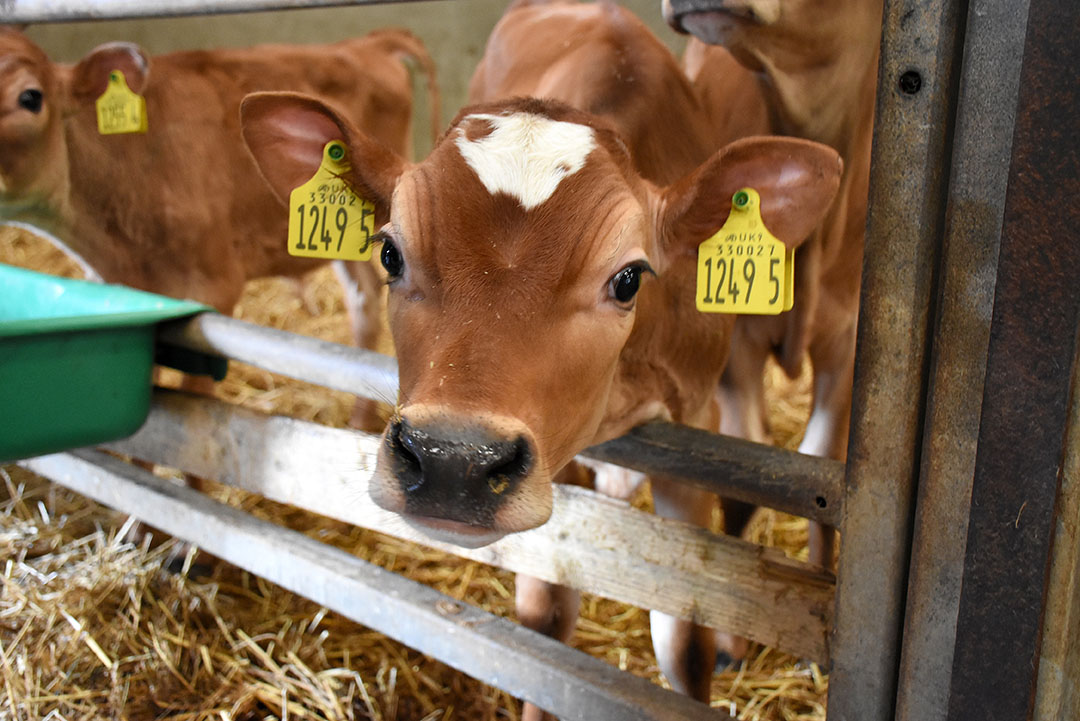
Dairy retail supply
As well as producing its own range of yoghurts, Clandeboye Estate supplies other retail outlets with produce under their own branding labels, such as Starbucks, Aldi and Lidl’s Deluxe range.
“At the moment we are producing 50% under our own label and 50% for other brands, although we do insist Clandeboye Estate is mentioned on the other brands, too,” says Boggs, adding, “Around 60% of our business is in the Republic of Ireland, so we really need to ensure the access to that market is maintained.”
Boggs notes that they are expanding: “We are also entering the market in GB in the future and require this new Windsor Framework to work for us. Northern Ireland is at an added advantage if we can have dual access to both the UK and EU markets,” he adds.
Join 13,000+ subscribers
Subscribe to our newsletter to stay updated about all the need-to-know content in the dairy sector, two times a week.



